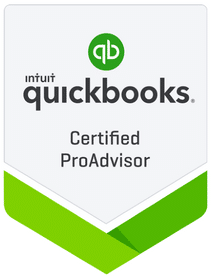- Patrick Roney
- (877) 503-8607
Follow Us :
Follow Us :
Proledge
June 25, 2024
In the current corporate climate, the success of companies wishing to market their services and products internationally depends mainly on the quality of the bookkeeping strategies implemented, the scalability of the internal tools used for recordkeeping tasks, and the accuracy of past financial ledgers. Do you want your business to escape the attention of tax authorities? Do you want your financial data to be kept secure and your business strategies to evolve in line with changes in your industry? If so, an excellent idea would be to use the services of a company like ours, which will take care of the management and importation of your transactional data into QuickBooks.
What are the main benefits of QuickBooks compared to traditional bookkeeping solutions? For one thing, there are the efficiency gains. QuickBooks merchant services can automate many of the complex and repetitive tasks that would generally decrease the efficiency of your venture’s internal teams. Through the merchant services offered by QuickBooks, actions such as credit card reconciliation, invoice tracking, payroll management, and payable and receivable administration can be streamlined, which will reduce the potential for transactional errors and increase the accuracy of your statements. QuickBooks is an ideal program for real-time collaborations between departments and enables remote access to financial data, regardless of the device used.
With QuickBooks, our experts will generate quarterly financial reports that your certified public accountant can analyze. Moreover, we will use the complex functions of the software created by Intuit to gather the necessary documentation for your upcoming tax returns. QuickBooks is an excellent solution for securing and encrypting your transactional data, is significantly more cost-effective than traditional manual bookkeeping methods, can be integrated with other third-party software used by your departments, and is available for both desktop and cloud-only usage.

Texas is home to no less than 55 Fortune 500 companies and is considered by many analysts to be the most advantageous state in terms of tax laws applicable to corporate entities. However, Texas, especially in cities such as Dallas or Austin, is characterized by constant innovation and a competitive environment between businesses aspiring for similar audiences and market share. Do you want your company to differentiate itself from rivals and attract the business of target demographics? If that’s the case, you will need to expand your budget, which will necessitate dealing with local banks.
However, this can lead to problems, as your transactional data could, in time, get conflated with those of the financial institutions on which you depend. When we say to reconcile QuickBooks accounts, we refer to the process by which your business’s transactional data can align with those listed on your bank or credit card statements. QuickBooks reconciliation is crucial for long-term business profitability, as it’s the only way by which your financial data can remain accurate and free of errors that may attract the attention of the IRS.
Moreover, QuickBooks reconciliation can be a tool to identify unauthorized transactions and keep your data ready for future tax reports and audit investigations launched by authorities. Our team at Proledge will keep your QuickBooks account updated and prepared for reconciliations that will guarantee the integrity of your financial information. Plus, we will ensure your venture complies with the regulations relevant to your sector. Not least, we will use QuickBooks online merchant services at maximum efficiency.
You can contact us anytime if you have questions or encounter a problem with your bookkeeping program.
Discrepancies in the transactional data between you and the banks or collaborators you work with are common and represent a consequence of doing regular business at a national or international level. However, if these discrepancies are not identified or resolved in a timely manner, they could lead to inaccurate profit statements or incorrect balance sheets and cash flow statements, which have the potential to affect the financial health of your venture. Inaccurate financial statements can lead to budget planning errors and negatively impact your CPA’s long-term economic forecasts. This, ultimately, will result in cash flow issues that will make it challenging to pay off your financial obligations to vendors and lenders.
QuickBooks reconciliation is crucial to keep away from tax filing errors and avoid issues with the regulatory bodies active in your sector. Inaccurate transactional data that is not reconciled on time will affect the likelihood of your venture accessing further private funds, negatively impact the trust that stakeholders place in your company, complicate the documentation required for surprise audits, and raise the risk of your firm falling victim to fraud attempts or external data breaches.
Our team will use QuickBooks reconciliation to correct the transactional data of your venture and bring it in accordance with the information collected by your collaborators. In addition, we will act as an intermediary between the management of your company and the financial institutions you use, administer the invoices and ongoing payments necessary for your financial success, work with your CPA to create a financial plan designed around sustainable growth, and ensure that your business complies with the tax regulations applicable to firms operating in your industry.

Currently known as QuickBooks Payments, QuickBooks merchant services are a set of payment and financial management solutions available in the QuickBooks platform, which allow companies active in the national and international markets to manage their payment processing in a streamlined fashion. The merchant services offered by QuickBooks enable organizations to handle credit card payments via invoice links, and they help businesses accept ACH payments coming from the bank accounts of collaborating vendors or customers.
QuickBooks is compatible with all the major credit and debit cards utilized in North America, including American Express. Moreover, the payments processed through QuickBooks merchant services are automatically recorded in the user’s account, making future reconciliation work a breeze. This automatic processing of the recorded financial data reduces the labor necessary for data entries, which in turn will free up your team’s schedule and eliminate the risks of costly financial recordkeeping errors.
QuickBooks Payments can help with cash flow management and provide an integrated all-in-one solution for tracking your venture’s financial data within QuickBooks. Through merchant services, our bookkeepers can create custom invoices and integrate your account with the POS solution already in use by your staff. Moreover, we will set up automated billing for your subscription-based services, ensure that your business complies with PCI standards, review your transactional history, and reconcile QuickBooks data with those of your collaborating financial partners.
First of all, if the account you want to reconcile is newly created or the transactional data in it has not yet been matched with the banks or vendors you work with, we will need to review your opening balance. To enter a new opening balance, we will go to the “Settings” tab of the application and select the option “Chart of accounts.” Once this is selected, we will click on “New” and set up your account by entering a name, selecting an account type, and choosing an opening balance. This opening balance can then be edited by clicking on “Chart of accounts,” followed by “View register.”
How to reconcile a credit card in QuickBooks? In truth, it’s just about following a specific set of instructions. Once your opening balance is reviewed, our experts will move on to the actual procedure of reconciling your transactional data. How to reconcile a credit card in QuickBooks is a question asked by most SMEs, but the procedure itself is pretty straightforward. Our bookkeepers will access your QuickBooks account, go to the “Settings” tab, and click on the “Reconcile” submenu.
Once that is done, we will click on the account dropdown, select the account you want to reconcile, and check whether the balance in QuickBooks is the same as the one in your transactional statements. Everything checks out? If so, we will type the “Ending Balance” and “Ending Date” on your statements and click on the “Start Reconciling” tab. Next, we will go over your transactions one by one, making sure the dates match with the ones on your statements, and we will review past reconciliations by selecting the “History by account” submenu in the “Reconcile” tab.

The completion time of your accounts reconciliation procedure will depend on the number of recorded transactions. Do you want to reconcile around one hundred transactions? If that’s the case, the procedure will take around two hours. However, for credit cards and accounts with various types of transactions, the procedure could take more than a full day. How to reconcile a credit card in QuickBooks? The process is not too complicated, but the complexity of the reconciliation procedure will depend on your experience with QuickBooks, the cataloging of your transactions, and the frequency with which you reconcile your transactional data.
The services offered by our company could be crucial to accelerate the reconciliation work, and our experience could be essential for the overall profitability enhancements of your venture. Do you require more help? Do you wish to know how to add a credit card to QuickBooks? If so, we are the right people for the job. To add a credit card to your QuickBooks account, our bookkeeping specialists will select the “Charts of Account” options available in the “Company” menu on the app homepage. After that, we will go to the “Account” section, click on +, and select a new credit card that will require an opening balance.
Do you have an issue with an American Express business account? Do you require Amex reconciliation or the undoing of a previous action? In that case, we will go to “Report,” followed by “Banking,” and click on “Reconciliation discrepancy.” After we check the account, we will back up your company file, click on the “Banking” subsection, then on “Reconcile,” and we will undo the last reconciliation. The process is straightforward, and usually, there should not be any problems with previous operations. Nevertheless, if errors occur, they can be corrected with minimal effort.
If you want to use QuickBooks for the financial recordkeeping needs of your venture, then you’ll have a choice to make. Either you go for QuickBooks Online, or you invest a sizeable up-front sum in QuickBooks Enterprise. How much are we talking about? QuickBooks Online starts at $30 per month for the Simple Start plan and goes up to $200 per month for the Advanced Subscription. However, it should be noted that for the first three months, the price of the online plan is halved. QuickBooks Enterprise, on the other hand, is $1922 per year. For that money, you get a comprehensive income & expenses tracker, more than 200 customizable built-in reports templates, and an integrated bill management system, among countless other features.
The desktop variant of QuickBooks is designed for companies operating nationally or internationally who require feature-rich accounting built around specific transactional needs. With QuickBooks Enterprise, your financial recordkeeping data is saved locally, and remote access to your services requires integration with third-party hosting services. The Windows version of QuickBooks features a more advanced inventory management system than its online counterpart. Plus, it allows for more robust customizable reports and provides depreciation tracking and reporting of company assets.
On the other hand, QuickBooks Online features automatic synchronization of bank and credit card transactional data. It is a cloud-based application that allows access to your company’s financial data from anywhere, regardless of the location or device used. Moreover, it can automate the backup process of economic data and can be integrated with already existing third-party applications, including payment aggregators like PayPal. QuickBooks Online has dedicated mobile apps for both iOS devices and Android, and, with the discontinuation of QuickBooks for Mac devices after the 31st of July, it is the only viable alternative for Apple desktop users.

The financial recordkeeping of transactional data can be tricky, especially if your company is active in a complex field that pushes your R&D budget to its limit. Do you want to focus your attention on the other departments of your firm that can increase market share? Do you want to reduce the workload of your employees? Then, we are the right people for your requirements. Our employees have the necessary experience to take care of your business needs, regardless of the complexity of your field.
Our bookkeepers will set up your QuickBooks account, migrate your financial data from the offline medium to the cloud, and perform regular security updates and backups to ensure your information is safe from external threats. We’ll ensure your financial data matches those of the banks or vendors you collaborate with, and we’ll automate many of the internal financial recordkeeping processes that would typically be handled manually by your employees. We are experienced in collaborating with companies in the same field of activity as you; we serve clients in Dallas, Austin, Houston, San Antonio, and Fort Worth; we are aware of the fiscal regulations active in your area, and we can keep your business up-to-date with additional modification in the local financial legislation.
Why use us and not an internal accounting department? Cost-efficiency. Our services can be tailored to changes in your market, and we can scale back our offerings according to your budgetary capabilities and the subjective preferences of your firm’s management. In contrast, an internal bookkeeping team will require the same level of monthly expenses, regardless of your firm’s financial performance or the realities of your industry. Outsourced bookkeeping services are more flexible and cost-effective. Therefore, to most SMEs, they are a better deal.
First, our experts will manage your account payables and receivables while simultaneously ensuring that your recorded transactional data corresponds to that of the banks or vendors you work with. Our company will maintain your general financial ledgers, analyze your past transactional data for irregularities, provide constant financial reports, including balance sheets and cash flow statements, and review the economic stability of your venture in conjunction with your CPA.
Alongside your payroll manager, our team will calculate the benefits of your employees and assist your CPA with the documentation necessary for tax filings. We will also prepare your transactional statements for surprise IRS audits. Moreover, we’ll create financial forecasts alongside your accountant that can be used for down-the-road economic development planning, provide QuickBooks training to your employees, and give them round-the-clock technical support. The services offered by our company are comprehensive, cost-effective, and can be a pillar of stability that will contribute to the expansion of your business.


Fill out the form below to sign up to our Blog Newsletter and we’ll drop you a line when new articles come up.

For many business owners, taking care of their business is like taking care of a baby. If you want a successful business, you need to always pay attention to the

Bookkeeping and accounting are words that are used interchangeably by most people. It’s true that both of these are about the financial management of your business, but in different ways.

It’s that time again! The tax season is slowly but surely coming to an end and that means you can’t postpone it anymore. You’ve got to figure it out. We

There are lots of businesses that need to find efficient ways to keep track of their finances nowadays, and if you are a business owner, you have experienced this first-hand.

As we all know, automated means of running your business have started to become very popular recently due to all of the perks that it provides. This is not to

So you’re at that point in developing your small business where you’re looking into accounting solutions. If so, you might have started to wonder what’s the best bookkeeping software for
Bookkeepers.
Professional. Affordable.
ProLedge is a bookkeeping services firm.
Copyright © 2024 All rights reserved.